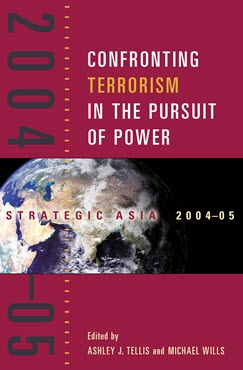South Asia
A Selective War on Terrorism
This chapter argues that terrorism will continue to pose a regional challenge unless key problems are addressed. These are the strengthening of the central government in Afghanistan, an end to cross-border terrorist movement into India, a serious attempt on the Indian side to address Kashmiri Muslim discontent, and a regional consensus of what constitutes terrorism among South Asian states.
Adjustments in foreign and domestic policies in post-Cold War Afghanistan, Pakistan, and India have provided opportunities for the growth of terrorism. The mixed record of the war on terrorism in South Asia has resulted from challenges posed by differing interpretations of terrorism among South Asian states, the U.S. emphasis on counter-terrorism at the expense of addressing social and political causes of radical sentiment, and the distraction of Iraq. Tough measures against terrorist groups in Pakistan and closer economic cooperation among South Asian states could expand the number of important stakeholders in regional peace. Terrorism will continue to pose a regional challenge unless key problems are addressed. These are the strengthening of the central government in Afghanistan, an end to cross-border terrorist movement into India, a serious attempt on the Indian side to address Kashmiri Muslim discontent, and a regional consensus of what constitutes terrorism among South Asian states.
Strategic Asia
The Strategic Asia annual edited volume incorporates assessments of economic, political, and military trends and focuses on the strategies that drive policy in the region. Learn more about Strategic Asia.


